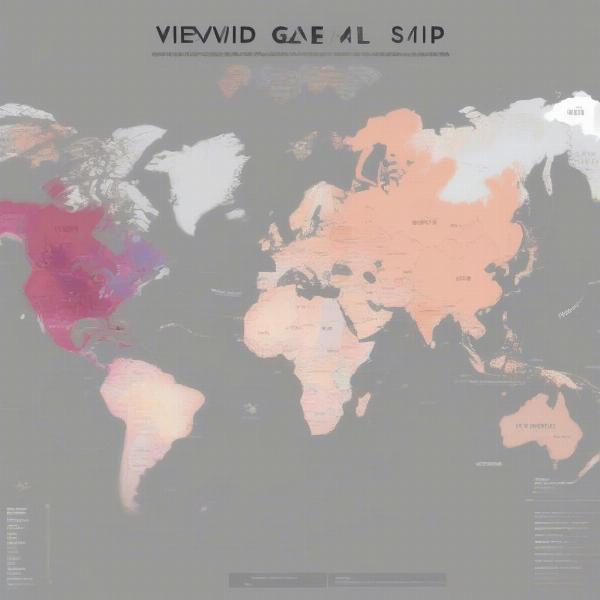Are Hunger Games and Squid Game similar? The immense popularity of both “The Hunger Games” and “Squid Game” has sparked countless comparisons between the two. While seemingly disparate – one a young adult dystopian novel series adapted into blockbuster films, the other a Korean thriller series exploding onto the global scene – they share a core premise: individuals forced to compete in deadly games for survival. This begs the question: just how alike are these two gripping narratives? Let’s dive into a comparative analysis of “The Hunger Games” and “Squid Game,” exploring their similarities and differences in themes, characters, social commentary, and overall impact.
Shared Themes of Survival and Social Inequality
Both narratives present chilling portrayals of societal inequalities, forcing their characters to fight for survival in a rigged system. In “The Hunger Games,” the opulent Capitol exploits the impoverished districts, demanding tributes for a televised spectacle of violence. Similarly, “Squid Game” reveals the desperation of debt-ridden individuals lured into a deadly competition with the promise of unimaginable wealth. This shared theme of survival against the backdrop of social disparity resonnates powerfully with audiences, highlighting the pervasive nature of injustice and its impact on vulnerable populations.
The Psychological Toll of Survival
Beyond physical survival, both narratives delve into the psychological toll of participating in such brutal games. Katniss Everdeen grapples with PTSD, moral dilemmas, and the burden of representing rebellion. Likewise, the players in “Squid Game” confront their own inner demons, forming alliances, betraying each other, and ultimately questioning the value of human life in the face of overwhelming pressure.
“Squid Game” magnifies the psychological tension by isolating its participants, stripping them of their identities and reducing them to numbered players. This anonymization heightens the sense of dehumanization inherent within the game’s structure.
 Social Commentary in Hunger Games and Squid Game
Social Commentary in Hunger Games and Squid Game
Contrasting Worlds and Characters
Despite these shared themes, “The Hunger Games” and “Squid Game” operate within distinct worlds and feature contrasting character arcs. Katniss embodies a reluctant hero, thrust into the spotlight and becoming a symbol of defiance against a totalitarian regime. “Squid Game,” on the other hand, focuses on Seong Gi-hun, a down-on-his-luck gambler seeking a way out of crippling debt. His motivation is primarily personal, driven by the desire to provide for his daughter and mother.
The Spectacle of Violence
While both narratives depict violence, “The Hunger Games” frames it within a larger political context, showcasing the Capitol’s manipulation of the games for propaganda purposes. “Squid Game” often leans into more visceral and graphic depictions of violence, creating a heightened sense of shock and unease for the viewer. This difference in approach contributes to the distinct tones and overall impact of each narrative.
Social Commentary and Cultural Relevance
“The Hunger Games” and “Squid Game” both offer poignant social commentaries, albeit through different lenses. “The Hunger Games” explores themes of political oppression, rebellion, and media manipulation, resonating with anxieties surrounding government overreach and societal control. “Squid Game,” meanwhile, focuses on the consequences of economic disparity, highlighting the desperation and moral compromises individuals make under extreme financial pressure. This focus taps into global anxieties surrounding wealth inequality and the exploitative nature of capitalism.
A Global Phenomenon
“Squid Game’s” rapid rise to global prominence speaks to its universality. The themes of debt, class struggle, and the allure of quick riches resonate with audiences worldwide. Its South Korean origin also adds a layer of cultural specificity, offering a glimpse into the societal pressures and economic anxieties prevalent in that context.
 Squid Game's Global Cultural Impact
Squid Game's Global Cultural Impact
Is Hunger Games a Precursor to Squid Game?
Did “The Hunger Games” pave the way for “Squid Game”? It’s plausible to argue that the success of “The Hunger Games” in popularizing the dystopian survival genre created a receptive audience for similar narratives. “Squid Game,” while distinct in its setting and execution, undoubtedly benefited from the groundwork laid by its predecessor. However, “Squid Game” also brought its own unique elements to the table, captivating audiences with its intensely psychological thriller elements and culturally specific commentary on the socioeconomic landscape of South Korea.
The Future of Dystopian Survival
Both narratives have undeniably contributed to the enduring popularity of the dystopian survival genre. They’ve also sparked crucial conversations about social inequalities, economic disparities, and the human condition under extreme pressure.
“The success of both ‘The Hunger Games’ and ‘Squid Game’ demonstrates a global fascination with narratives exploring survival and social injustice,” says Dr. Emily Carter, Professor of Media Studies at the University of Southern California. “These stories force us to confront uncomfortable truths about our own societies and the systems that perpetuate inequality.”
The Games We Play: A Final Comparison
Ultimately, while sharing a common thread of survival games, “The Hunger Games” and “Squid Game” offer distinct narratives with their own strengths and social commentaries. “The Hunger Games” provides a politically charged allegory for rebellion and the power of hope, while “Squid Game” delivers a visceral and unsettling exploration of human desperation and the dark side of capitalism. Both stories remind us of the importance of empathy, resilience, and the ongoing struggle for a more just and equitable world. What are your thoughts on these compelling narratives? Share your opinions in the comments below!
FAQs About Hunger Games and Squid Game
- What are the key similarities between Hunger Games and Squid Game? Both depict survival games within a context of social inequality, forcing characters to make difficult choices to survive.
- How do the games themselves differ? “The Hunger Games” focuses on combat and survival in a large outdoor arena, while “Squid Game” features a series of children’s games with deadly consequences.
- What are the main social commentaries in each narrative? “The Hunger Games” critiques political oppression and media manipulation, while “Squid Game” highlights the dangers of economic disparity and the dehumanizing effects of capitalism.
- Are there any connections between the two narratives? “The Hunger Games” may have helped pave the way for the popularity of dystopian survival narratives like “Squid Game,” but they are distinct stories with different origins and themes.
- Why are these stories so popular? They tap into universal anxieties about social injustice, economic hardship, and the human will to survive, resonating with audiences globally.
- What is the significance of the ending in Squid Game? The ending highlights the cyclical nature of desperation and the difficulty of escaping the systems that perpetuate inequality.
- How do the protagonists differ in their motivations? Katniss is driven by a desire to protect her family and becomes a symbol of rebellion, while Gi-hun is motivated by personal debt and the desire to provide for his family.
Related Topics: Exploring Dystopian Themes and Social Commentary
While “Hunger Games” and “Squid Game” offer compelling narratives on their own, exploring related themes and social commentaries can further enrich our understanding of these complex stories. Let’s delve into some key areas that expand upon the core ideas presented in both narratives.
The Ethics of Survival: Exploring Moral Dilemmas
Both narratives force their characters into situations where they must make difficult ethical choices to survive. This raises fundamental questions about the nature of morality and the limits of human behavior under pressure. Exploring philosophical perspectives on ethics and moral decision-making can provide a deeper understanding of the choices characters make and their consequences.
The Power of Hope and Resistance in Dystopian Societies
Despite the bleakness of their circumstances, characters in both narratives demonstrate remarkable resilience and a capacity for hope. Analyzing the role of hope and resistance in dystopian societies offers insights into the human spirit’s ability to persevere even in the darkest of times. Examining historical examples of resistance movements can further illuminate the power of collective action and the pursuit of social change.
The Allure and Danger of Gamification
Both narratives utilize the concept of “gamification,” where real-life situations are transformed into games with specific rules and objectives. This raises questions about the allure and danger of gamification in modern society, particularly in the context of social control and manipulation. Exploring the psychology of gamification can provide a deeper understanding of its impact on human behavior and its potential for both positive and negative consequences.
Conclusion: Reflecting on the Games
Is Hunger Games Like Squid Game? In conclusion, while “The Hunger Games” and “Squid Game” share some thematic similarities, they are distinct narratives with unique strengths and social commentaries. The comparison allows us to delve deeper into the complexities of human nature, social structures, and the enduring appeal of the dystopian survival genre. Both narratives prompt us to question the systems that perpetuate inequality and to consider the choices we might make under similar circumstances. This exploration reminds us of the importance of critical thinking, social awareness, and the ongoing pursuit of a more just and equitable world.

